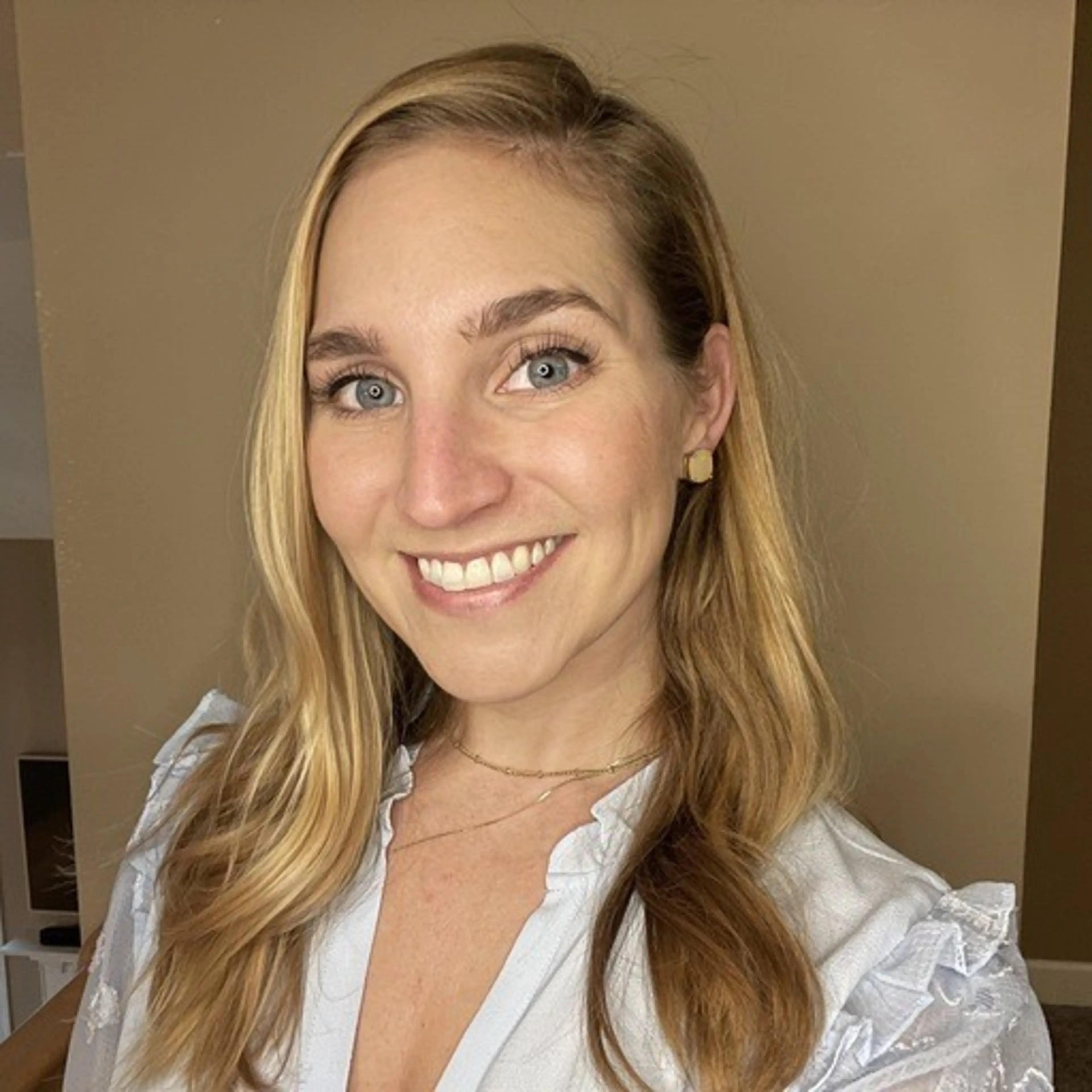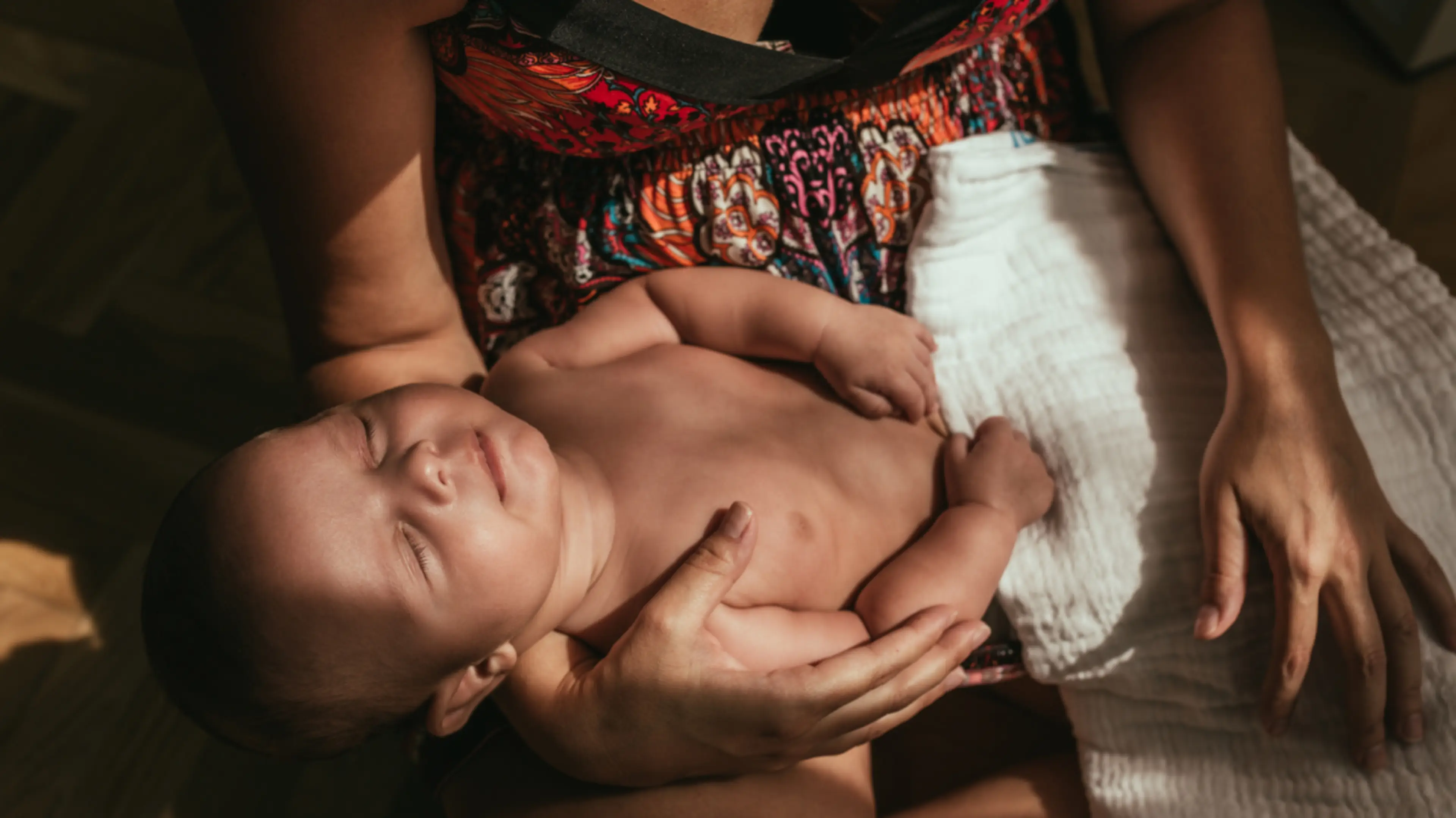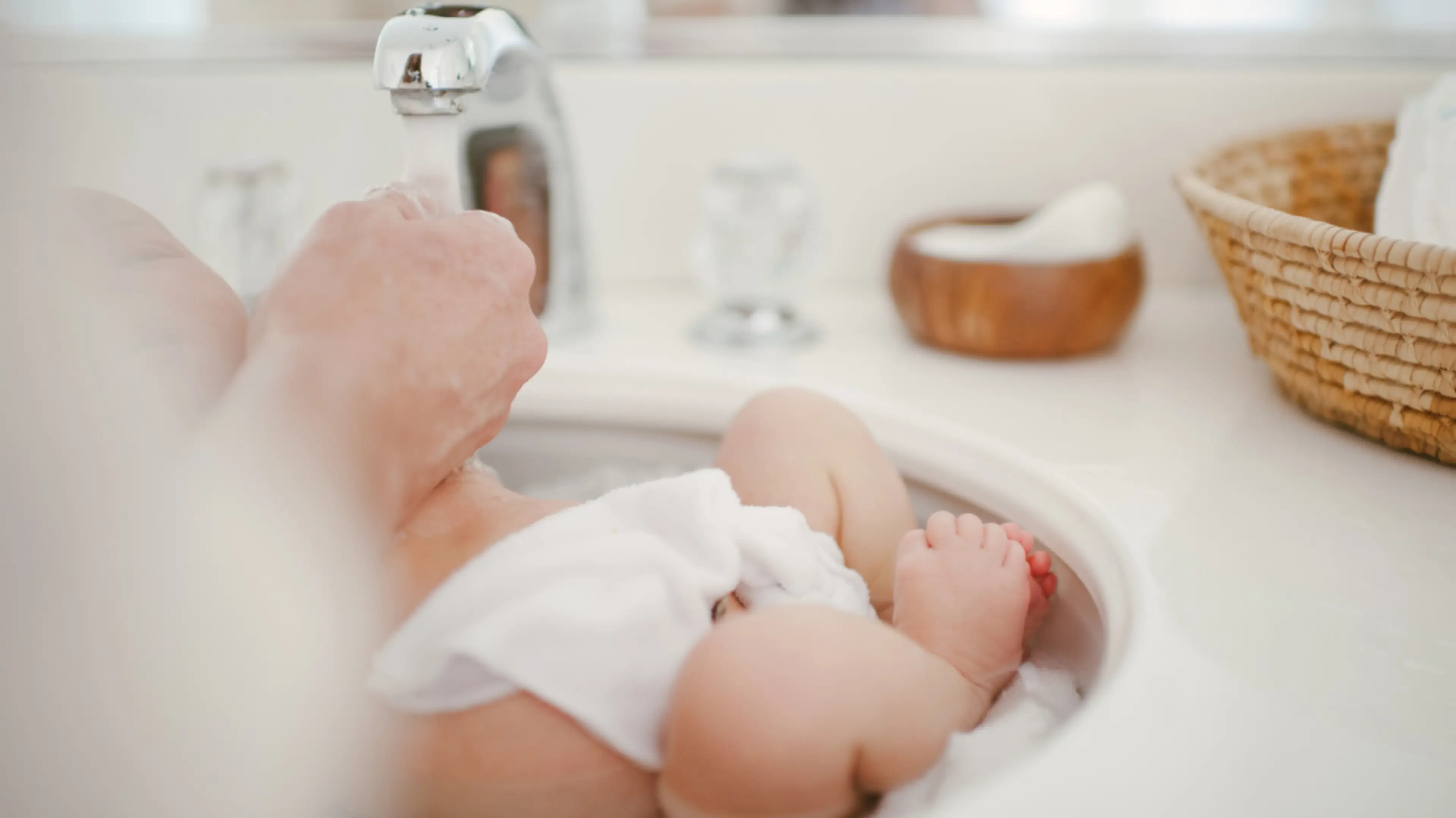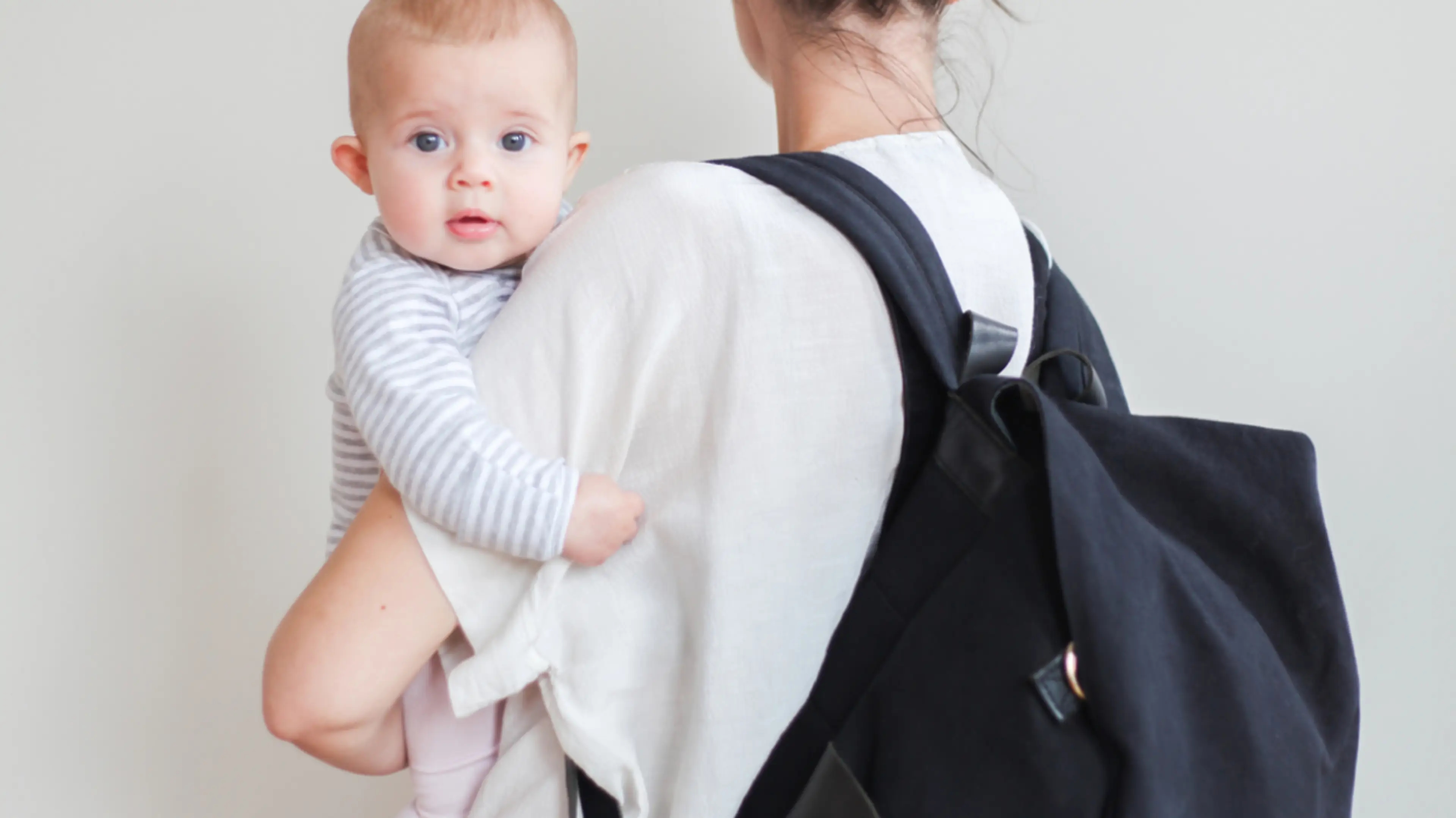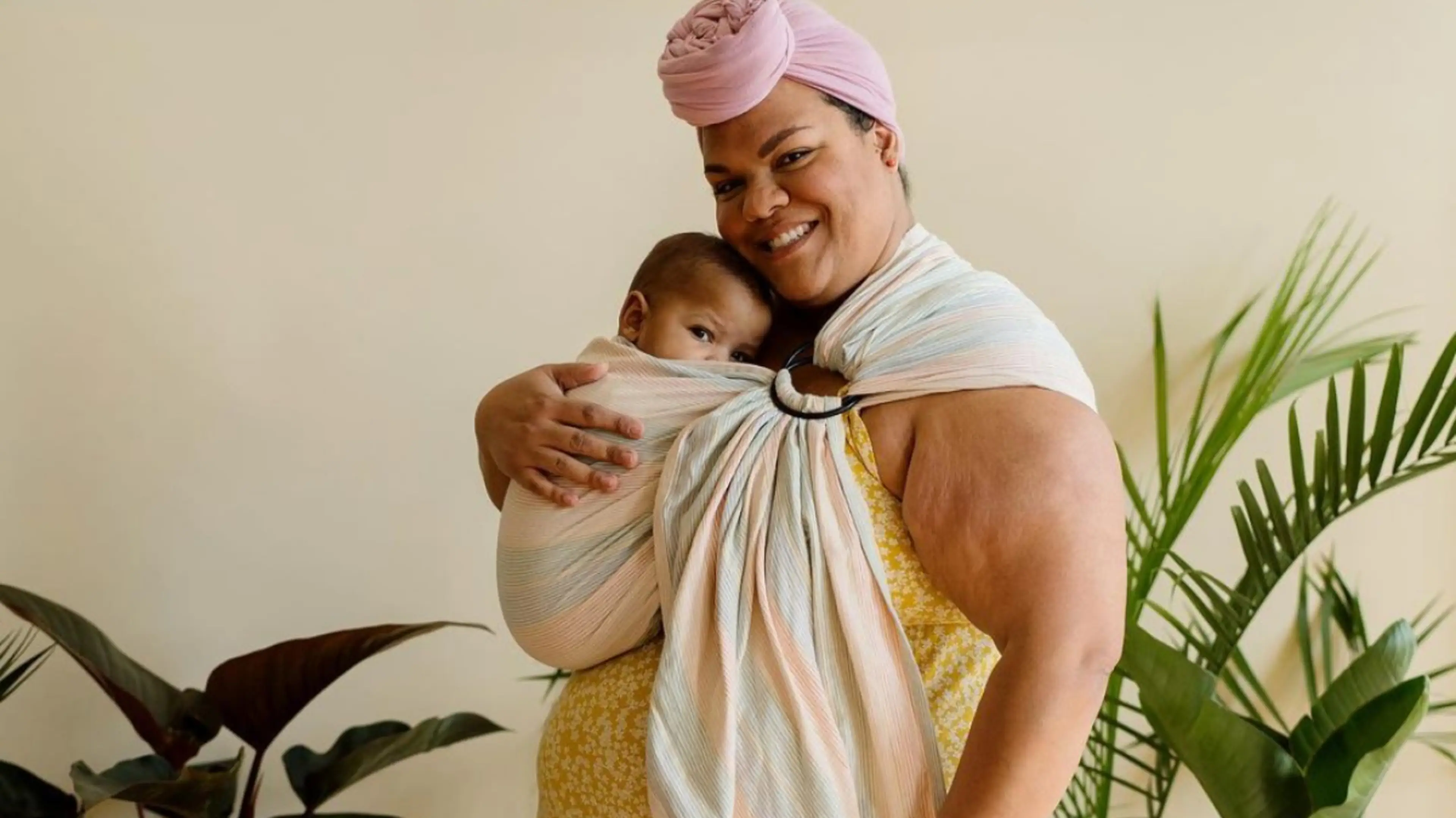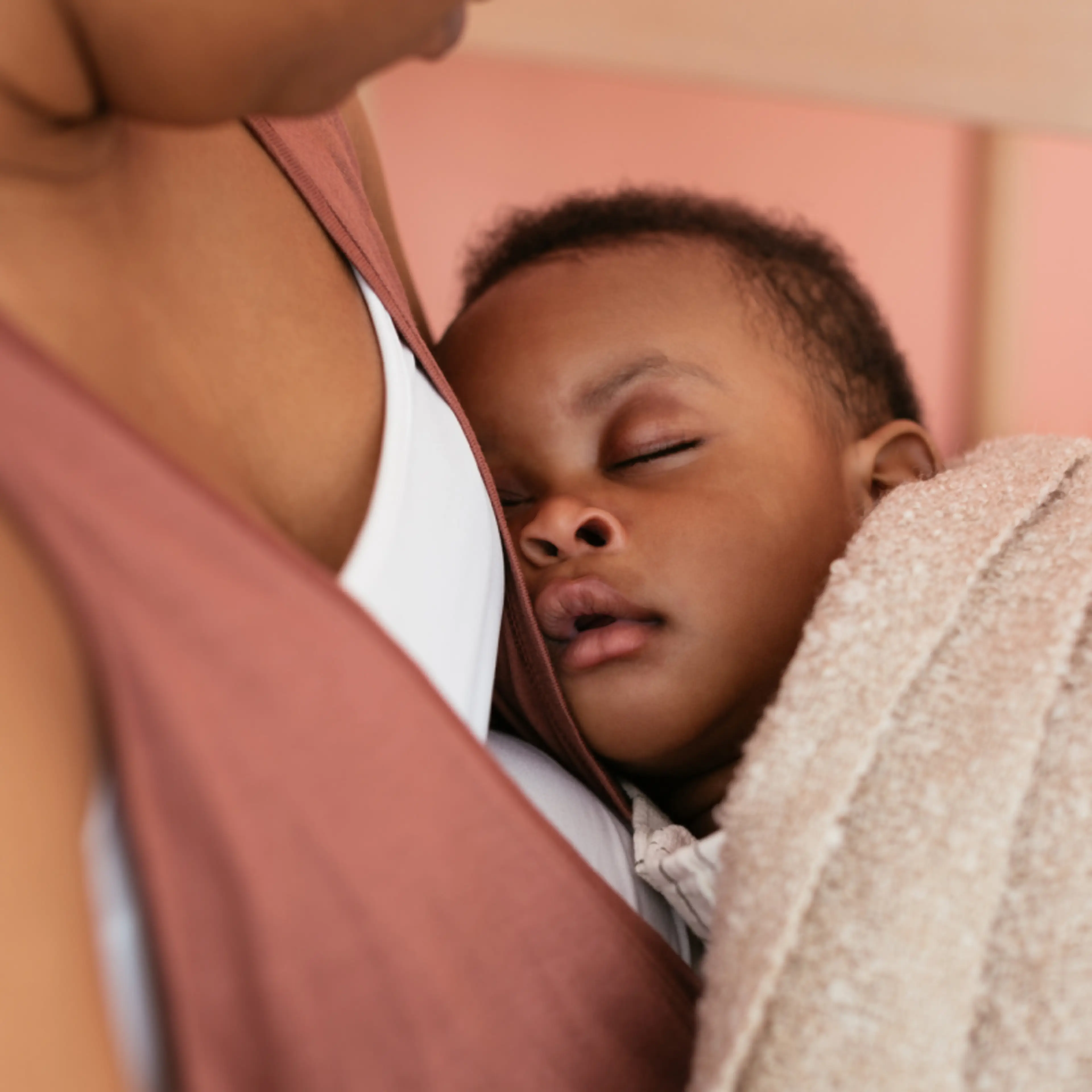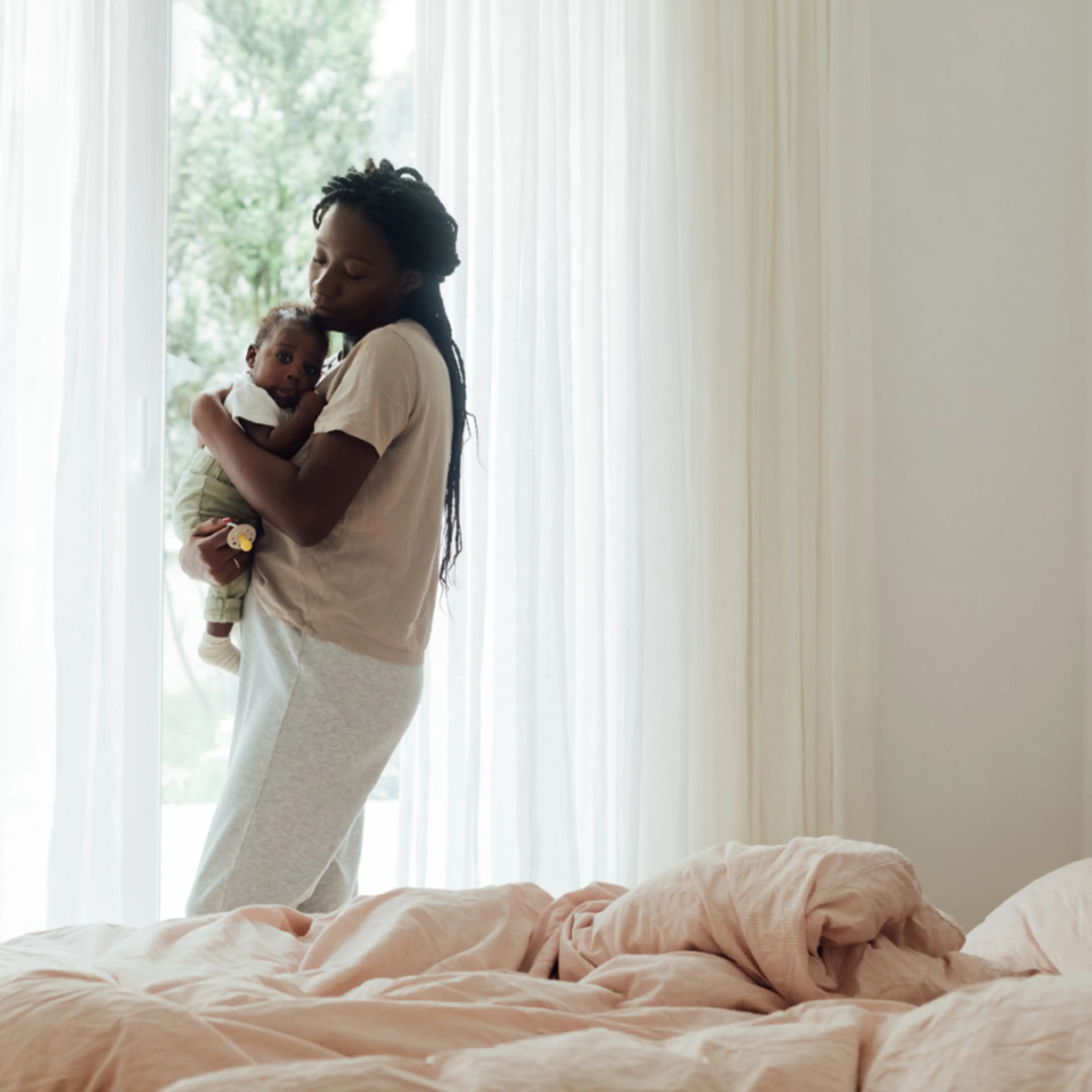TLDR: It can be a struggle to get a new baby (or even a not-so-new baby) to sleep—and then to stay asleep. We talked to a pediatric sleep consultant to learn some surprising truths and advice, including why it’s so important to establish a sleep routine.
As a relatively new mom, there’s one phrase that I’ve either thought or said out loud more than any other over the past year of my life and the first year of my daughter’s life: Please, baby, go to sleep.
Baby sleep is a tricky business. Some parents follow a strict schedule, some take the baby’s lead, and some just pray that the baby closes their eyes and finds rest for longer than 20 minutes. On top of that, books, social media, and your mom's friends all have recommendations on how to approach this cloudy part of new motherhood. The good news: there’s a professional out there who can help you with evidence-based techniques for setting up your baby for sleepy success—Say hello to a pediatric sleep consultant.
Pediatric sleep consultants are trained professionals who can help parents and babies find patterns and sleep routines that make for a happier, healthier life. Especially during the postpartum period, sleep is an essential part of your recovery. You just birthed a baby, after all, and you need (read: deserve!) a good night’s sleep!
I met with certified sleep consultant and founder of The Sleepyhead Coach1 , Julie Connelly, who dropped some major baby-sleep truths. Connelly is a mother of two and has not only studied up on baby sleep habits, but she has lived the trials and tribulations of them firsthand. Plus, she backs up her recommendations with evidence and real-life testing.
To kick off our conversation, Connelly hit me with maybe one of the best truths of all: that moms don’t need to walk around with a No-Sleep Badge. It shouldn’t feel like a “rite of passage.” Getting your baby to sleep is also a gift to you, and that’s just as important.
For this interview, to get some good nuggets of information for you to walk away with, I devised a “game” to let the truths shine. It’s called The Unexpected, by Expectful (check out our other pieces in this series, The Unexpected Nutrition and The Unexpected Lactation). I proposed a set of prompts (some true or false, some fill-in-the-blank) to Connelly, and she knocked them out of the park.
Read on for Connelly’s advice about establishing a routine, how to frame your child’s sleep, and how a sleep consultant can help you.
1. True or False: To get the best results, you need to have a sleep consultant monitor your baby’s sleep in real-time.
Julie Connelly: That’s false! I think one of my favorite things about being a sleep consultant is that it can be done virtually. It can be done via Zoom if you want to get that personal connection, or it can even be done over the phone if you’re multitasking with another child running around. Also, one of the cool things I get to do is work across time zones, borders, and countries! So I think that’s a cool thing about being virtual—that you, as a mother, can pick and choose a sleep consultant that aligns with your personality and your parenting style, regardless of where you’re physically located.
2. The complaint I hear from every mom is _______.
JC: Something along the lines of, “My child hates sleep!” or “My child was never a good sleeper.” I hear it all the time, so what I want to remind parents is that sleep is natural. So then we have to think about “How do I get my child the restorative sleep they need to thrive and grow?” and that’s where you can work with a sleep consultant to help your child develop a healthy sleep foundation. As I said, sleep is natural, and this is something they can do. And under [a parent’s] loving guidance and support, [the baby] can get there. There’s hope!
3. My most fool-proof tip is _________.
JC: Well, the one that you probably hear all the time is, “Sleep when the baby is sleeping,” but I think that’s something we can all agree, as parents, is just not that helpful. I always joke that, “Okay, and do the laundry when the baby’s doing laundry!”
So my favorite tip is establishing a bedtime routine from the get-go. Establishing these patterns and steps that happen consistently in the same order each night not only gives your child the cues that sleep is coming, but it’s extremely comforting, provides security for them, and [promotes] bonding with your baby. And if you don’t have [a bedtime routine], it’s never too late to try one or change one.
Having a bedtime routine is one of my favorite foolproof tips to implement from the beginning.
4. True or False: The best time to contact a sleep consultant is when you’re having a problem with baby's sleep.
JC: False! There are many opportunities when it’s really helpful to reach out to a sleep consultant, especially in the newborn phase. Maybe there aren’t “problems,” but maybe there are things that you need to know, or maybe you want to bounce ideas off a sleep expert so that you can better navigate the next steps to come, which can help you feel prepared. It can also help with things you know are coming, like schedule changes. Maybe you’re traveling and need some tips, weaning from the pacifier, transitioning to a big-kid bed—there are so many transitions around sleep when talking to an expert can be helpful.
5. Sleep help isn’t just for babies and new moms, it’s also for _____.
JC: It’s also for toddlers, preschoolers, third-time moms, or even sixth-time moms! Every child is so different and unique even though we all have average sleep needs. Just because your first child had this nap schedule or used that training method doesn’t mean it’s going to work for your second child. Maybe your toddler was sleeping great, but then at age two or three, they hit a regression with a lot of changes in their world.
I didn’t need help with sleep for my first child, but my second child, I did! I didn’t know where to turn, so I just hope moms [reading] this will feel seen and heard—that no matter if you’re a second-time or third-time mom, you don’t need to have all the answers!
Something that I loved that Connelly said before the interview was that figuring out baby sleep affects the whole family. Whether it’s just a couple of you in the house or you have yourself a zoo—you recognize that if the baby is happy, healthy, and getting good sleep, it shifts the whole house into a better place. When you find sleep for the baby, Connelly says, “There’s a sense of peace that’s restored in your home.” We couldn’t agree more.
